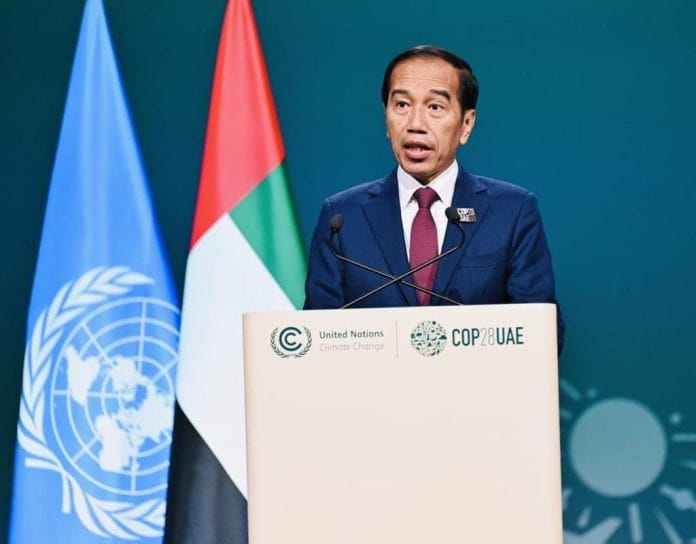President Joko Widodo said Indonesia needs more than US$1 trillion of investment to enable it to achieve its target of cutting carbon to net-zero by 2060.
He believes that many developing countries share the similar position with Indonesia, Jokowi, as he is known, said at the United Nations Climate Change Conference COP28 in Dubai, United Arab Emirates, on Friday.
To this end, he underlined the importance of having an inclusive collaboration in undertaking concrete actions to produce works for reaching the net-zero emission (NZE) target.
“This is what we must achieve at the COP28,” President Jokowi said, adding that Indonesia is willing to work hard to reach its NZE target by 2060 or earlier than that.
At the same time, Indonesia also wants to enjoy a high economic growth, significant drop in poverty rate and inequality, and ongoing job creation, he said.
However, developing countries are not able to work alone to reach their NZE targets. Therefore, Indonesia calls for collaboration from bilateral partners, private investors, philanthropists, and friendly countries to help achieve the targets, he said.
“We also have credible and innovative financing platform, ‘carbon bourse’, energy transition mechanism, green bonds, and environment fund management related to the Results-Based Payment,” he said.
In addition, multilateral development banks must also increase their energy transition funding capacity with low interest rates, he said while reminding that the Paris Agreement’s and NZE targets can only be achieved if all countries are able to solve the energy transition funding issues.
“Starting from this point, problems the world is facing are solvable,” he added.
As revealed on the UN Climate Change’s website, the Paris Agreement’s central aim is to strengthen the global response to the threat of climate change by keeping a global temperature rise this century well below two degrees Celsius above pre-industrial levels and to pursue efforts to limit the temperature increase even further to 1.5 degrees Celsius.
Apart from its limited capacity, Indonesia continues to reduce its greenhouse gas (GHG) emissions; work hard to improve the management of forestry and other land use (FOLU) sector; and accelerate its renewable energy transition.
A report the UN Climate Change recently published revealed that “national climate action plans (known as nationally determined contributions, or ‘NDCs’) would collectively lower greenhouse gas emissions to two percent below 2019 levels by 2030, while the science is clear that a 43 percent reduction is needed”.









